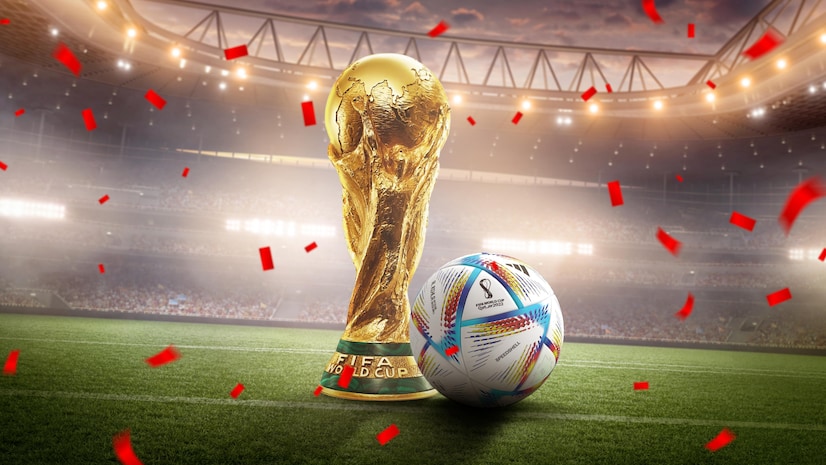The FIFA World Cup is the grandest tournament in international football. It’s not just about lifting a trophy—it’s about national pride, unforgettable drama, and stories that last forever.
Held every four years, the World Cup brings together the best of the best. From its humble start in 1930 to the billion-view spectacles of today, each edition has crowned a new chapter in football history.
Here’s the complete FIFA World Cup winners list along with host nations, final match results, and legendary moments from each tournament.
FIFA World Cup Winners Table (1930–2022)
| Year | Winner | Runner-up | Host Country | Final Score |
|---|---|---|---|---|
| 1930 | Uruguay | Argentina | Uruguay | 4–2 |
| 1934 | Italy | Czechoslovakia | Italy | 2–1 (AET) |
| 1938 | Italy | Hungary | France | 4–2 |
| 1950 | Uruguay | Brazil | Brazil | 2–1 |
| 1954 | West Germany | Hungary | Switzerland | 3–2 |
| 1958 | Brazil | Sweden | Sweden | 5–2 |
| 1962 | Brazil | Czechoslovakia | Chile | 3–1 |
| 1966 | England | West Germany | England | 4–2 (AET) |
| 1970 | Brazil | Italy | Mexico | 4–1 |
| 1974 | West Germany | Netherlands | West Germany | 2–1 |
| 1978 | Argentina | Netherlands | Argentina | 3–1 (AET) |
| 1982 | Italy | West Germany | Spain | 3–1 |
| 1986 | Argentina | West Germany | Mexico | 3–2 |
| 1990 | West Germany | Argentina | Italy | 1–0 |
| 1994 | Brazil | Italy | United States | 0–0 (3–2 pens) |
| 1998 | France | Brazil | France | 3–0 |
| 2002 | Brazil | Germany | South Korea/Japan | 2–0 |
| 2006 | Italy | France | Germany | 1–1 (5–3 pens) |
| 2010 | Spain | Netherlands | South Africa | 1–0 (AET) |
| 2014 | Germany | Argentina | Brazil | 1–0 (AET) |
| 2018 | France | Croatia | Russia | 4–2 |
| 2022 | Argentina | France | Qatar | 3–3 (4–2 pens) |
Decade-by-Decade Highlights
1930s: The Inception of the World Cup
- 1930 (Uruguay): The inaugural tournament saw Uruguay triumph over Argentina 4–2 in Montevideo, marking the beginning of World Cup history.
- 1934 & 1938 (Italy): Italy became the first team to win consecutive World Cups, showcasing tactical prowess under coach Vittorio Pozzo.
1950s: Post-War Resurgence
- 1950 (Brazil): Uruguay stunned hosts Brazil 2–1 in the Maracanã Stadium, an event famously known as the “Maracanazo.”
- 1954 (Switzerland): West Germany defeated the formidable Hungarian team 3–2, a match dubbed the “Miracle of Bern.”
- 1958 (Sweden): A 17-year-old Pelé burst onto the scene, leading Brazil to a 5–2 victory over Sweden.
1960s: Emergence of New Powers
- 1962 (Chile): Brazil retained their title, defeating Czechoslovakia 3–1, solidifying their dominance.
- 1966 (England): England secured their only World Cup title, beating West Germany 4–2 after extra time at Wembley Stadium.
1970s: Total Football and Brazilian Flair
- 1970 (Mexico): Brazil, led by Pelé, dazzled the world with a 4–1 win over Italy, earning their third title.
- 1974 (West Germany): The hosts overcame the Netherlands’ “Total Football” approach with a 2–1 victory.
- 1978 (Argentina): Argentina claimed their first title on home soil, defeating the Netherlands 3–1 after extra time.
1980s: Maradona’s Magic
- 1982 (Spain): Italy, inspired by Paolo Rossi’s goals, beat West Germany 3–1.
- 1986 (Mexico): Diego Maradona’s brilliance, including the “Hand of God” and “Goal of the Century,” led Argentina to a 3–2 win over West Germany.
1990s: Tactical Battles and Penalty Dramas
- 1990 (Italy): West Germany edged Argentina 1–0 in a tightly contested final.
- 1994 (USA): Brazil and Italy played to a 0–0 draw, with Brazil winning 3–2 on penalties, marking the first final decided this way.
- 1998 (France): France, led by Zinedine Zidane, secured their first title with a 3–0 victory over Brazil.
2000s: European Ascendancy
- 2002 (South Korea/Japan): Brazil, with Ronaldo’s resurgence, defeated Germany 2–0.
- 2006 (Germany): Italy and France drew 1–1, with Italy winning 5–3 on penalties; the match is also remembered for Zidane’s headbutt incident.
2010s: Tiki-Taka and German Efficiency
- 2010 (South Africa): Spain’s possession-based play culminated in a 1–0 extra-time win over the Netherlands, courtesy of Andrés Iniesta’s goal.
- 2014 (Brazil): Germany triumphed over Argentina 1–0 in extra time, with Mario Götze scoring the decisive goal.
- 2018 (Russia): France’s youthful squad, featuring Kylian Mbappé, overpowered Croatia 4–2.
2020s: Messi’s Crowning Achievement
- 2022 (Qatar): In a thrilling final, Argentina and France drew 3–3, with Argentina winning 4–2 on penalties. Lionel Messi’s performance was instrumental, earning him the Golden Ball.
Countries With Most FIFA World Cup Titles
| Country | Titles | Years Won |
|---|---|---|
| Brazil | 5 | 1958, 1962, 1970, 1994, 2002 |
| Germany* | 4 | 1954, 1974, 1990, 2014 |
| Italy | 4 | 1934, 1938, 1982, 2006 |
| Argentina | 3 | 1978, 1986, 2022 |
| France | 2 | 1998, 2018 |
| Uruguay | 2 | 1930, 1950 |
| England | 1 | 1966 |
| Spain | 1 | 2010 |
*Germany includes titles won by West Germany.
Notable Players in World Cup History
- Pelé (Brazil): The only player to win three World Cups (1958, 1962, 1970).
- Diego Maradona (Argentina): Known for his extraordinary performances in 1986, leading Argentina to victory.
- Zinedine Zidane (France): Instrumental in France’s 1998 win, scoring twice in the final.
- Ronaldo Nazário (Brazil): Top scorer in 2002, leading Brazil to their fifth title.
- Lionel Messi (Argentina): Played a pivotal role in Argentina’s 2022 triumph, earning the Golden Ball.
- Kylian Mbappé (France): Scored a hat-trick in the 2022 final, showcasing his exceptional talent.
Fun Facts About the FIFA World Cup Winners
- Brazil is the only country to have played in every World Cup.
- Italy and Brazil are the only two nations to win back-to-back titles.
- No African nation has ever reached the final—Morocco came closest in 2022 (semi-finals).
- The 2018 final had the most goals (6) since 1966.
Frequently Asked Questions
Who won the first FIFA World Cup?
Uruguay won the inaugural World Cup in 1930, defeating Argentina 4–2 in Montevideo.
Which country has won the most FIFA World Cups?
Brazil has won it 5 times: 1958, 1962, 1970, 1994, and 2002.
Has a host nation ever won the World Cup?
Yes, multiple times—Uruguay (1930), Italy (1934), England (1966), Germany (1974), Argentina (1978), and France (1998).
Who is the youngest player to win a World Cup?
Pelé was just 17 when he won in 1958 with Brazil.
What was the highest-scoring final?
The 1958 final (Brazil 5–2 Sweden) and 2018 final (France 4–2 Croatia) are tied for most goals in a final match.










